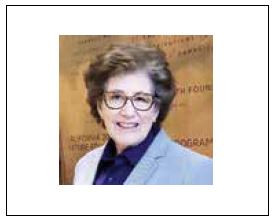
By Dr. Marcy Adelman–
Tim and his husband Michael live in San Francisco. They have been together for more than 30 years. Michael is 8 years younger than Tim, so it was a surprise to both of them when Michael started having cognitive problems in his early 60s.
At first, Michael thought it might just be a combination of age and an increasingly stressful situation he was experiencing at work. Tim was more concerned that it wasn’t just about stress. Together they sought out testing and a diagnosis. It never occurred to Tim that something would happen to Michael before him. He thought, given their age difference, it would be Michael taking care of him.
Tim called me to tell me the diagnosis is early onset Alzheimer’s. He said, “At least we know now and can make plans. We are going to go through this together. I don’t want to miss a minute of my time with him.”
There are 690,000 Californians living today with Alzheimer’s and other forms of dementia. According to projections by the California Department of Public Health, this number will double by 2040. California’s population is projected to grow by 16% by 2040, while the number of people living with Alzheimer’s will grow by 127%.
Diverse communities are disproportionately impacted. The prevalence of some form of dementia in the Hispanic and Black Californian communities will triple by 2040. Alzheimer’s and other forms of dementia will more than double among LGBTQ Californians and API communities by 2040.
Despite being disproportionately affected by Alzheimer’s, Black, Indigenous, Hispanic, Asian Pacific Islanders and LGBTQ populations are underrepresented in Alzheimer’s research. The underrepresentation of diverse communities is a major barrier to understanding health disparities and providing the most effective dementia treatments.
Future research needs to include increased numbers of underrepresented populations in clinical trials to ensure everyone benefits from advances in Alzheimer’s science. The Equity in Neuroscience and Alzheimer’s Clinical Trials (ENACT) Act, sponsored by the Alzheimer’s Association, would do just that by increasing diversity of clinical trial staff and expanding education and outreach to underrepresented communities.
You can help by asking Speaker Pelosi to bring The ENACT Act to a vote in the House. Madam Speaker’s office phone number is 415-556-4862
If you want to get more involved in the fight against Alzheimer’s, visit: https://www.alz.org/ and https://alzimpact.org/
Dr. Marcy Adelman, a psychologist and LGBTQ+ longevity advocate and policy adviser, oversees the Aging in Community column. She serves on the California Commission on Aging, the Board of the Alzheimer’s Association of Northern California, the California Master Plan on Aging Equity Advisory Committee, and the San Francisco Dignity Fund Oversight and Advisory Committee. She is the Co-Founder of Openhouse, the only San Francisco nonprofit exclusively focused on the health and well-being of LGBTQ+ older adults.
Published on March 10, 2022
Recent Comments